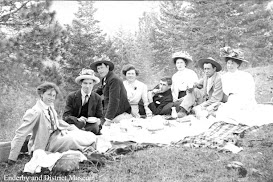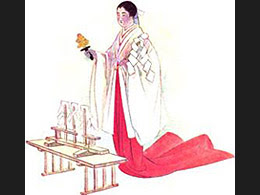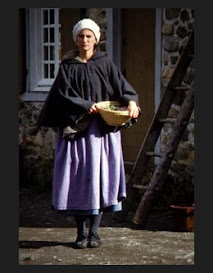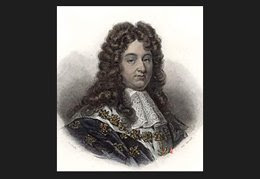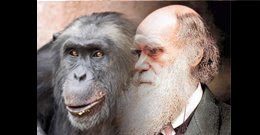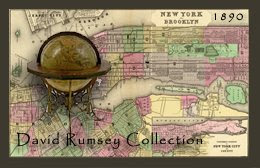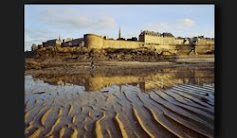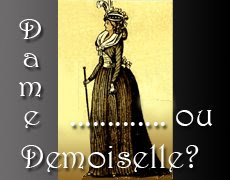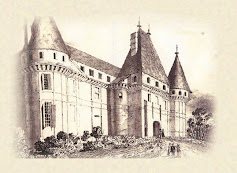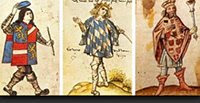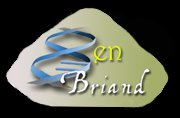Monday, November 21, 2016
FRENCH GENEALOGY TUTORIAL
This tutorial is a help for those who search their French ancestors, offering basic tools and online orientation for their researches. It includes an example of how to browse a surname and a commune in French Departments, and some hints about other interesting resources.
THE HISTORY OF SURNAMES
Every surname in the world has a significance and a history. Surnames are the link between individuals throughout the time, and the safer property of the family. This documentary is an exposition of how surnames were created in different countries, with an especial analysis of patronymics, toponymics, hypocoristics, geographical situation and personal characteristics surnames.
Tuesday, July 26, 2016
THE HISTORY OF JEWISH SURNAMES (Truth & Myths)
This is the story about how the Jewish names were developed throughout the History., from the Shem Ha Kodesh (sacred Hebrew names) up to the kinnuim (secular names in every country). It's a valuable cultural information, and a helpfor genealogists and researchers.
Sunday, February 2, 2014
CONSERVATION OF DOCUMENTS (Part One)
They are not only papers, or
old pictures. They are the living memory of our past, and a permanent legacy
for the future. In this video, the most important procedures you have follow to take care of your treasured papers, photographs and family documents, plus the AIC (Code of Ethics and Guidelines for Practice) rules and recommendations.
Tuesday, June 19, 2012
GENS VIDEO WEB CHANNEL
A Genealogy channel
I would like to introduce you to this new website, a real genealogical channel, which is based only in videos. You may watch these videos with high quality of sound and images, and in a huge 854 x 480 pixels screen.
(Click on the image to enter to the site).
Sunday, May 6, 2012
THE HISTORY OF SURNAMES
Every surname in the world has a significance and a history. Surnames are the link between individuals throughout the time, and the safer property of the family. This documentary is an exposition of how surnames were created in different countries, with an especial analysis of patronymics, toponymics, hypocoristics, geographical situation and personal characteristics surnames.
Friday, August 26, 2011
THE EIGHTEENTH CENTURY (A Guide for Genealogists)
In English, "The Enlightenment", in French "Le Siècle des Lumières"; in Spanish "La Ilustración"; in German "Aufklärung"... This century is, no doubt, one of the most interesting centuries in History. This century changed the face and the spirit of the entire known world at that time. This is my personal vision about the century in which the man opened his eyes and developed a new structure of thought. In this century were invented the flights in baloon, the piano, the steam engine, the electric battery... and the sandwich!...
(Click here or in the image to go to The Enlightenment website)
Saturday, January 22, 2011
EYELASHES IN HISTORY
Following with the hair history, the eyelashes history and how women were interested along the centuries about the eyelashes' style, could also be interesting for those who try to learn something else about our ancestors' appearance.
Wednesday, December 8, 2010
HAIR'S HISTORY

Genealogy is precisely to know as much as we can about our ancestors. This website will help, for sure. I didn't built this site with genealogical purposes, but when I finished with it, I found out that it's pretty useful for genealogists. Grooming, combing, styling, brushing, dying hair have been a very particular concern for our forebears. Throughout history, people always have cared about their appearance and this simple fact is giving us an accurate idea about how our grandparents looked, and what is more important, why. I hope you enjoy it.
Friday, June 4, 2010
INTERVIEW WITH AN AMERICAN GENEALOGIST IN PARIS.
 Anne Morddel is an american genealogist living in Paris, and the author of French Genealogy Blog, a wonderful work with abundant information, rich and profoundly elaborated, for the satisfaction of all those who are interested in genealogy. It's the result of years of investigation and a deep knowledge about this field. What's different about this blog? She has her own media production: everything is original, she travels, visiting interesting places, and giving her readers or followers a first-hand source of information. Anne was talking with us, pouring on this blog enlightening comments, her particular point of view about genealogy in general, and other interesting topics.
Anne Morddel is an american genealogist living in Paris, and the author of French Genealogy Blog, a wonderful work with abundant information, rich and profoundly elaborated, for the satisfaction of all those who are interested in genealogy. It's the result of years of investigation and a deep knowledge about this field. What's different about this blog? She has her own media production: everything is original, she travels, visiting interesting places, and giving her readers or followers a first-hand source of information. Anne was talking with us, pouring on this blog enlightening comments, her particular point of view about genealogy in general, and other interesting topics.Tuesday, June 1, 2010
THE FRENCH REVOLUTIONARY CALENDAR
 The Republican Calendar. An attempt of the revolutionaries to introduce France into the parameters of a rational, efficient world. A "good bye" to the old rules of the Ancien Régime and the Pope. A conversion of an old world of quotidian complex operations to another easier world, more simple and more efficient. A calendar not impossed by the authority, but by the same citizens. Nevertheless, nobody felt comfortable with it, it was complicated for the international relations, and, finally, it was abolished. It was used later back again in France in 1848 and 1871, for a very short time. Benito Mussolini adopted it in 1922, during his "fascist age". Actually, it still has followers, and it's consulted by genealogists and historians. Take a look on the Republican Calendar; you'll also find a conversion to our conventional dates and today's date. Now, at this year 218 of the Republican Age.
The Republican Calendar. An attempt of the revolutionaries to introduce France into the parameters of a rational, efficient world. A "good bye" to the old rules of the Ancien Régime and the Pope. A conversion of an old world of quotidian complex operations to another easier world, more simple and more efficient. A calendar not impossed by the authority, but by the same citizens. Nevertheless, nobody felt comfortable with it, it was complicated for the international relations, and, finally, it was abolished. It was used later back again in France in 1848 and 1871, for a very short time. Benito Mussolini adopted it in 1922, during his "fascist age". Actually, it still has followers, and it's consulted by genealogists and historians. Take a look on the Republican Calendar; you'll also find a conversion to our conventional dates and today's date. Now, at this year 218 of the Republican Age.Thursday, May 27, 2010
HOW TO PRESERVE OLD DOCUMENTS
 Statistics told me that this post was one of the most visited in this blog. Then, I improved the post about conservation of old documents with this new version, which is far more complete than the former one. All possible topics were reached: conservation of papers, photographs, different kind of papers and their history, all kind of photographs in the past, and a final page with a review of bacteria, insects, moistures and every "illness" the old documents might have. And, at the end, a reflexion, known by everybody but interesting to get in mind: prevention is better than cure.
Statistics told me that this post was one of the most visited in this blog. Then, I improved the post about conservation of old documents with this new version, which is far more complete than the former one. All possible topics were reached: conservation of papers, photographs, different kind of papers and their history, all kind of photographs in the past, and a final page with a review of bacteria, insects, moistures and every "illness" the old documents might have. And, at the end, a reflexion, known by everybody but interesting to get in mind: prevention is better than cure.Wednesday, May 19, 2010
HEIRS OF THE OBLIVION (About Les Enfants Trouvés)
 They might be our ancestors. But they didn't have a name or a family. They are the foundlings, the enfant trouvés. The heirs of the oblivion. A story of love and missed encounters. The missed encounter of a society with itself, after giving its back to the reality so many times. They are that "other side" of the genealogy about coats of arms and noble ancestors. They are a real story about human beings, left at a side of the life. We, the genealogical searchers, must not forget them. They are the heirs of the oblivion, but they shouldn't be heirs of our oblivion.
They might be our ancestors. But they didn't have a name or a family. They are the foundlings, the enfant trouvés. The heirs of the oblivion. A story of love and missed encounters. The missed encounter of a society with itself, after giving its back to the reality so many times. They are that "other side" of the genealogy about coats of arms and noble ancestors. They are a real story about human beings, left at a side of the life. We, the genealogical searchers, must not forget them. They are the heirs of the oblivion, but they shouldn't be heirs of our oblivion.Wednesday, April 21, 2010
THE BASQUES AND THE CULT OF THE ANCESTORS.
 The Basques have one of the most ancient cult of the ancestors. For them, this kind of worship was the reason to be congregated in families, clans, strongly attached to their land, and united by a common origin. And this ancestor-cult also reinforced their idea of community and nationalism. Perhaps, this familiar cult was even one of the origins of the genealogy.
The Basques have one of the most ancient cult of the ancestors. For them, this kind of worship was the reason to be congregated in families, clans, strongly attached to their land, and united by a common origin. And this ancestor-cult also reinforced their idea of community and nationalism. Perhaps, this familiar cult was even one of the origins of the genealogy.Saturday, March 6, 2010
FRENCH CIVIL RECORDS, FOR GENEALOGISTS: A NEW WEBSITE

March 6th and it's still cold here in Miami, which is not frequent at this moment of the year. I would like to introduce you with a new website: Les Archives de la France. Well, "Guide of access to the departmental archives of metropolitan France, France Overseas and the old French colonies". That's really the title, a little long, I know, but... It has a search engine by department, by alphabetical order, and by regions. Another link to a very complete report of the French communes. It has a very well sized map with a fast access in a link directly to the pages with civil documents on line (and, of course, toward the others, not on line). And is going to have more applications this week. The index is in French language (as a courtesy for the French people), but it's linked at the home page with the English version, and the links in this post are going to the English version.
If you think it's convenient, keep the web address: it's a very useful tool for genealogists, and very complete, also the most actualized (it was finished yesterday). And you will not need a magnifier to check the map: it has a pretty good size.
Friday, July 31, 2009
HOW TO DIGITIZE OLD DOCUMENTS
 To digitize old documents is a way to preserve them, to freeze the passage of time. And to avoid the loss of important archives, either by erosion, or any damage or accident. Although this work is not a science, some previous knowledge and to know some tricks it's necessary to can handle it with efficiency.
To digitize old documents is a way to preserve them, to freeze the passage of time. And to avoid the loss of important archives, either by erosion, or any damage or accident. Although this work is not a science, some previous knowledge and to know some tricks it's necessary to can handle it with efficiency.Sunday, July 26, 2009
STOWAWAYS: A GENEALOGICAL MYTH
 "My grandfather's arrival to the country is not recorded because he traveled as a stowaway in a ship", is one of the most common myths in family stories, and simultaneously, one of the most false asseverations. Based in the lack of familiar information, or in the emotive or romantic what is to picture the story in this way, the myth is repeated by generations, and many times is far from the reality. What is inconsistent about the "stowaway myth"?
"My grandfather's arrival to the country is not recorded because he traveled as a stowaway in a ship", is one of the most common myths in family stories, and simultaneously, one of the most false asseverations. Based in the lack of familiar information, or in the emotive or romantic what is to picture the story in this way, the myth is repeated by generations, and many times is far from the reality. What is inconsistent about the "stowaway myth"?Tuesday, July 21, 2009
GENEALOGY FRAUD (II)
 In the former post we have seen that the genealogy fraud was unceasingly repeated along all the History. Today is still between us. Last name's coat of arms are constantly offered in the web, even selling copyrights on them, what is to say like being pretty close to the illegal, as well as "Family X Books", which resembles more a phone's directory than another thing. And a lot of similar stuff is offered to the people every day.
In the former post we have seen that the genealogy fraud was unceasingly repeated along all the History. Today is still between us. Last name's coat of arms are constantly offered in the web, even selling copyrights on them, what is to say like being pretty close to the illegal, as well as "Family X Books", which resembles more a phone's directory than another thing. And a lot of similar stuff is offered to the people every day.Before the appearance of Internet, the fraud was covered behind the lack of available sources, at the hand, where to verify the information. At that time we were forged by the forgers. Today, with all this abundance of information, we are defrauded by the innocents. We can see, today, amateur genealogists proud of having in their family trees more than 1,500 related surnames. Do they really think that they have more than 1,500 relatives? Let's assume that they are reasonable people and they don't pretend such a thing. What's the point, then, for that enormous compilation, competing with the white pages? What they are really doing, actually, is to upload extremely heavy family trees to the databases, with a high percentage of non verified data. Many of them find out related surnames, and, immediately, they are uploading whole family trees -without even checking the source- to their owns. The Mormons had filed in their genealogical library a giant database, trying to give salvation to the souls of the deceased, and to baptize them into the Mormon religion, if it's possible going back up to Noah's family and his Ark's descendants. This is very useful as a base of consultation, no doubt. But, here comes the first warning: all this data is received with no previous verification (it's impossible to do it in every case, of course; they only ask for real names and a complete description of whole birth, marriage and decease dates) and it's important to be aware that all of this is only a base of consultation, not a trustworthy information by itself. All data obtained from third parties must be properly verified, crossing the information with another documents, enforcing to sustain the veracity of those reports. All serious genealogists know very well that genealogy is a travel, not a final destination. And, as good researchers, they ought to be skeptics as the investigators in the best thriller movies. Precisely there is where lies the emotion of genealogy. I have several examples of wrong information in my own familiar genealogy: five histories about my Briand family published in the web with the same wrong concepts (they perhaps copied and pasted each other): my ancestor Alain Briand is recorded as the father of Michel Briand. Alain was born in 1550, and Michel in 1558. Nobody complained about this inconsistency. Some of them "fixed the problem" saying that Alain was born "near to 1530"... It was very hard for me to find out that this Alain, married with Guillemette Guyheneuc, was Michel's brother. In other of my family trees, written by others, some of my Acadian ancestors are recorded as being baptized few days after they born "into the LDS church", in 1770. Sixty years before the Mormon church was founded by Joseph Smith. Moreover, taking account that Mormons does not perform baptisms for infants. And I might follow up showing more and more examples of similar situations.
So that, if we were before defrauded by the bad ones, now we are also defrauded by the good ones (enthusiastic and careless compilers of genealogical data).
In my own genealogy I've published all the original civil acts, trying to give a proper back up to everything I'm exposing on there. They can be verified in the correspondent parishes or municipal registers. I don't, sincerely, have found many genealogists doing the same. Should be an obligation -if not legal, at least from the ethic point of view- to do it. If we don't take the family history seriously, and we don't participate actively in the emotion of the research, about verifying what we are receiving, and if we are not conscious that all what is published, microfilmed, or filed in some way, must be verified before being taken for granted, we are going to loose the adventure of the research. And maybe, we also loose, between all that confusion, of knowing who our real relatives are, and which our real family history was. Sometimes, our true stories are more interesting than all those myths inherited from ...who knows who.
Thursday, July 16, 2009
GENEALOGY FRAUD (I)
 False names, doubtful information, non verified kinships: stay alert. Forgers are on the look out. And much more than we think: 55% of the genealogies published in Internet have serious mistakes, according with an statistic of the Genealogy Fraud Website. Surnames, dates, civil data information, are published without any control. Do we have to believe that all what we read in Internet is true, only because it was published on the web? The incorrect data are not recent; perhaps they remain dragged on there since a long time ago. But every day new falsifications are contributed to the social network. It's recommendable to be aware.
False names, doubtful information, non verified kinships: stay alert. Forgers are on the look out. And much more than we think: 55% of the genealogies published in Internet have serious mistakes, according with an statistic of the Genealogy Fraud Website. Surnames, dates, civil data information, are published without any control. Do we have to believe that all what we read in Internet is true, only because it was published on the web? The incorrect data are not recent; perhaps they remain dragged on there since a long time ago. But every day new falsifications are contributed to the social network. It's recommendable to be aware.Monday, July 13, 2009
WHO WILL TELL OUR STORY?
 They will. Our children. And the grandchildren of our children...and who knows. Those kids who actually are going to the elementary school, or maybe those who still can't speak, or those who are not still born.
They will. Our children. And the grandchildren of our children...and who knows. Those kids who actually are going to the elementary school, or maybe those who still can't speak, or those who are not still born.It's very important that we give them access to the world of the genealogy, to the recognition and research of those who preceded us.
Why? For two very important reasons: 1) They might have a better personality, well posicioned and structured. 2) And this is a very interesting reason: the genealogic research, amongst other aspects, implies that they could be aware about the curiosity for the History, or Geography ("where did the grandfather come from?" "And where is that located?"...); the recognition of all that past world that they have at their back; which will lead to explain a lot of features of the present world!.. In consequence, all of what the school can not succeed about to get them interested about. The genealogy, through their own will, will achieve the objective, taking them from the hands toward all those disgusting matters, that in their learning, are a tedious enumeration of weird names and unknown and not attractive dates and locations.
It would be more reasons, of course, as that they could feel affection for their families, their familiar patrimony, that they could develop an interest about organization and classification, that they become by theirselves people avid of knowledge, without being obligued to do so. That they could learn what is "hipotesis-thesis-demonstration", but in the real life, in the practice of something. Who knows if we are not creating people with authentic curiosity, future scientific discoverers, changing their ways toward the positive...
How to achieve this? Let's talk, let's organize the ideas, we have to be interactives for this work. Let's address to the main genealogical sites or companies, let's make them proposals. Let's give an impulse to the organization. Also we could make in our children or granchildren's schools "genealogic shows", asking them for their old granparents pictures, or for information about their forbears. Wouldn't it be funny for them?
Nobody has been worried seriously about this matter until now. Let's be the first of all; the land is virgin. Let's be the pioneers of a better focused new generation. If we don't do things like this, what we are here for? This is our mission; to give them, besides our genes, the possibility of another mentality, to make them better people.
No matter if you don't have a genealogy. In 200 years you will be a valuable reference for your descendants. All of us will be their ancestors in the future, and maybe they will comment about us, that we have been the pioneers of the public interest in genealogy.
Until now, genealogy is an activity handled mostly by elder people, most of them filling with it the emptiness of their retirements. Somebody ever asked to the children if they don't want to be active participants in this matter?
After all, if we don't take care of this, who will tell our story?
Subscribe to:
Posts (Atom)


